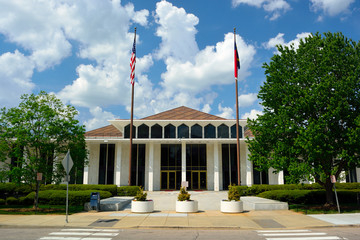Eighteen Republican state senators sent a letter to Gov. Roy Cooper on Friday, May 8 asking for clarification of the Phase 1 executive order, particularly the portion governing religious services.
The order specifies that if it were “impossible” to hold religious services outside, they could be held inside, and one question the senators asked was a definition of impossible.
Cooper responded to the letter and to that particular question with this: “In situations where it is not possible to conduct worship services outdoors or through other accommodations – such as through, for example, a series of indoor services of 10 or fewer attendees, or through online services – the 10 person attendance limit on indoor worship services does not apply. For example, there may be situations in which particular religious beliefs dictate that some or all of a religious service must be held indoors and that more than 10 persons must be in attendance. While indoors, participants should continue to adhere to the Recommendations to Promote Social Distancing and Reduce Transmissions.”
Cooper’s response also notes that for funerals the limit for worship services is raised from a maximum of 10 people to a maximum of 50 people.
Cooper’s response did not go over well with the Republican senators that signed the letter. Senators Kathy Harrington (R-Gaston) and Carl Ford (R-Rowan) wrote, “Gov. Cooper’s absurd state order is unconstitutional on two grounds: it treats churches differently than commercial establishments and it treats some religions differently than others. It’s plainly unconstitutional.”
The response from Harrington and Ford also states, “Gov. Cooper’s order also has content-based restrictions: The Governor has prevented more than 10 people from meeting in a chapel for a worship service, but he simultaneously allows 50 people to meet in that same chapel in the same pews if the worship service involves a funeral. There is no health and safety distinction between these two gatherings in the same chapel. It is a content-based restriction on the free exercise of religion, and it is unconstitutional.”


This is easy, let these people worship however they want, then quarantine them to their homes by law.
Lizzy, “by law” means that legislation must be passed by both chambers and signed in to law by the Governor. “By law” does not mean by executive fiat, as there is no law on the books.
And are you really that worried about people’s health or are you merely interested in a show of force?
Gov. Cooper needs to go. His order should not be considered “for the good of the state” but pandering to Democrats who obviously have few if any religious beliefs that don’t involve bankrupting the US. I pooh-pooh on the order – I’m American, free, tax-paying, and have the right to worship without any interference from Roy “My Way or the Highway” Cooper.
Mandy Cohen said that retailers and churches are being treated differently because there is a higher risk of people being infected with the virus when they are indoors and sitting down. So why have they spent the last 8 weeks telling us all to stay inside? What happened to “stay home, stay safe”?? There is no credible scientific evidence that “social distancing” works because there is no “control” segment where the alleged experts did no “social distancing”. They have no data to compare. I will hazard a guess that the same thing is true of Cohen’s incredulous claim that people are more likely to be infected if they are seated. To be able to know when someone contracted the disease and their body position at the time defies credibility unless they are hospitalized. I implore Ms. Cohen to share this data with us. How long has Cohen been telling us to stay inside while knowing that we would be more prone to infection?? Or is this more Cohen-Cooper BS?
Are you really that stupid? You don’t know what the difference is between staying inside at home and staying inside a church, shoulder to shoulder with who knows how many people you have NO idea where they have been or what they have been exposed too for over an hour? Geeze.
Cooper would rather keep Planned Parenthood open and close religious places. Is Roy a Muslim?